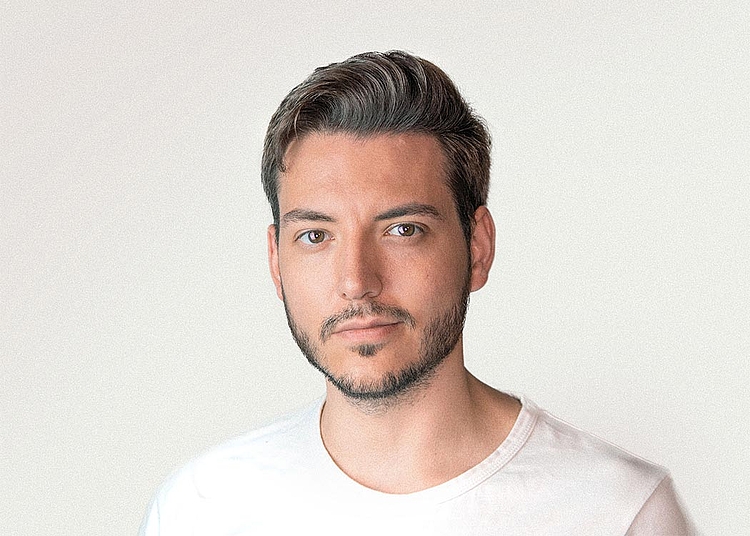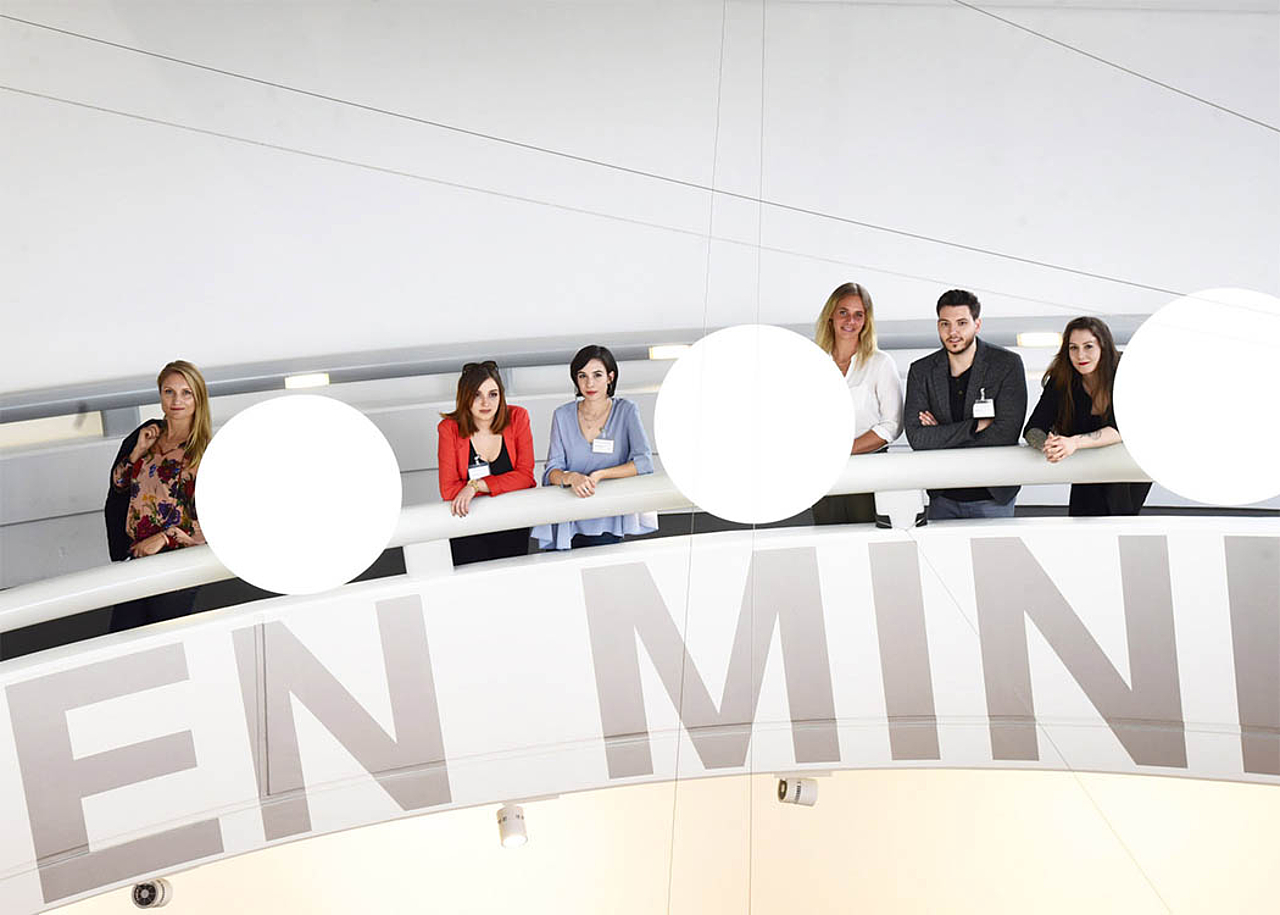What comes to mind when you think about your studies at Media University?
I spent most of my 20s at Media University, so I think first and foremost I think of all the classic student experiences that one has during this time. That includes, of course, friends and fellow students, many good courses and lecturers and some good parties... and a lot of workload every now and then.
You acquired a Bachelor of Arts in Graphic Design and Visual Communication and a Master of Arts in Communication Design at Media University Berlin. What is your current job position?
I was fortunate to be able to build up a client base while I was still studying, which is why I was able to continue seamlessly as a freelance graphic designer after completing my master's degree. As such, I often work for small and medium-sized companies, but I am also regularly booked by larger agencies to design key visuals, poster campaigns or logos for major projects. This is the most exciting part of the job for me, as it also gives me the opportunity to work on projects for companies like Bosch, Vodafone or Allianz Insurance. I also lecture now and then and pass on my experience with current design software.
Did you get any further work experiences prior to your current position that you would like to share with us?
The most important experiences I made already during my internship during my bachelor studies. There I got to know all important aspects of the agency side. Without this experience, it would probably not be possible for me to support clients and projects as comprehensively as I do today. I also noticed for myself personally that creative work in the form of a 9 to 5 job rather reduces the quality of the results. If, as a morning grumbler, I am supposed to deliver the first results by 11 a.m., then these results will look accordingly. Being able to organize my time myself allows me to do better work and also to maintain the much-cited work-life balance.
When did you figure out your preferred career path? How much was your choice influenced by the compulsory internship?
This question has actually never come up to me, as I found all aspects of the classic graphic designer as a service provider exciting from the very beginning and even today I have deliberately not specialized too much. Rather, I take care to accept varied projects in order not to use exclusively the same program every day at some point in the future, or at some point to use only one specific medium. However, I already developed a passion for teaching during my master studies, which I would like to continue to develop in the future. This passion was born when I was commissioned to offer an InDesign course, which then led to many other software courses.
Why did you decide to study “Communication Design”? And what made you choose Media University Berlin?
During my bachelor's studies I had already had almost exclusively good experiences at Media University. When the new master's degree program was announced at the same time as the final submission of my bachelor's thesis, it seemed like the logical consequence. I was also attracted by the fact that the course of study was held entirely in English. As a former bachelor student, I also received a discount, which finally made the decision even easier.
Which contents of your studies are part of your current job? How do your studies help you in your work routine?
Since graphic design was already my hobby before my studies, I already had a lot of previous knowledge, which was mainly deepened by my studies. However, especially in the field of print design a lot of new knowledge was added, both theoretical and practical, which I still use very often. In the Master's course we then dealt with a lot of design theory, which at first glance may not be very applicable, but in the end it contributed a great deal to reflecting on our own work much better and to raising it to a new level of quality.
What are your plans for the future?
I would like to further expand my independent activity and in the future I would like to have the opportunity to implement large projects holistically with my own employees - as an individual in a large project you are currently still doomed to be just one cog among many. Personally, however, I enjoy creativity most when my own freedom of decision is as great as possible and I would like to work on this freedom.
Furthermore, I will continue to teach - at least part-time - as this offers the perfect counterbalance to my design work.
What do you like most about your current job position? What is your biggest challenge?
Both questions can be answered very clearly with the free time management as a freelancer. To be able to sleep in almost all cases and to be able to take a day off at any time: These are advantages I wouldn't want to miss. However, you have to be careful that the lack of predetermined and fixed working hours can also lead to the feeling that you can theoretically work at any time and actually should. The relaxed end of the day, when you drop the pencil and go home, is something I only have when I have really finished all my projects. But that means again that I don't have any more projects at that time, which could cause financial worries. Currently, I manage to find a balance between free time and enough work. But I had to learn this tightrope walk first.
Could you tell us more about the application phase after your graduation?
In my case, customer acquisition was the biggest difficulty. Door-to-door cleaning proved to be a tough task, and if I had not been lucky enough to land a major customer early on, one that is constantly expanding and has produced many subsidiaries as additional customers, I might not be able to finance myself independently today. In fact, however, the freelance work has also given me many job prospects, as one automatically develops contacts with agencies that at best appreciated my work, which also resulted in many job offers. So far, however, I have always rejected this job security in favor of freedom as a freelancer, but mostly with a slight stomach ache.

